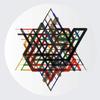
In the final project of the studio, students sought to bring this idea to bear on the design of a space of work for a program and at a scale of their choosing and selected from a list of possible scenarios.

Game-like media function as an allegory for our times, and the digital game will come to be seen as the emblematic cultural form of of the 21st century. In this project, students seek to develop their gaming literacy through a graphic analysis of a board game. These drawings explore multiple 'optimizations' of play - from various points of view and with various aims in mind - and speculate on a 'perfect' instance of gameplay.

In this project, an existing work of architecture is analyzed through the conceptual structure of a board game. Games are an ancient kind of interactive system. If we accept that the dominant structure of the 21st century is the complex dynamic system, and that engagement with interactive media can help foster 'systems thinking', an essential new literacy in this new century that complements, rather than displaces older forms of literacy including visual, textual, and oral literacies, then the conceptual structure of the game might become a useful instrument for understanding many aspects of our contemporary world.